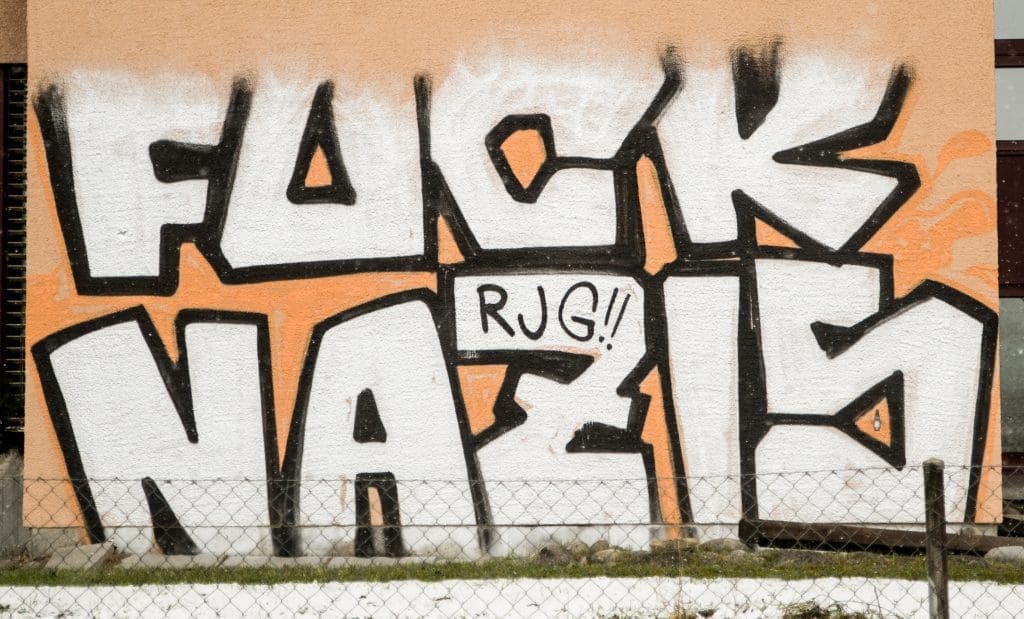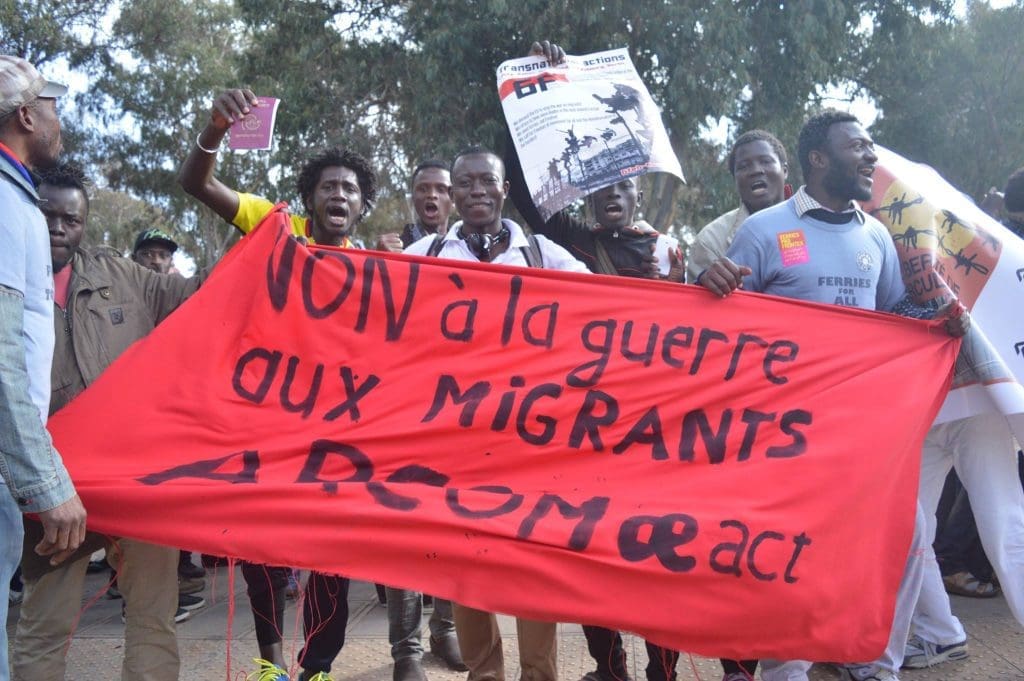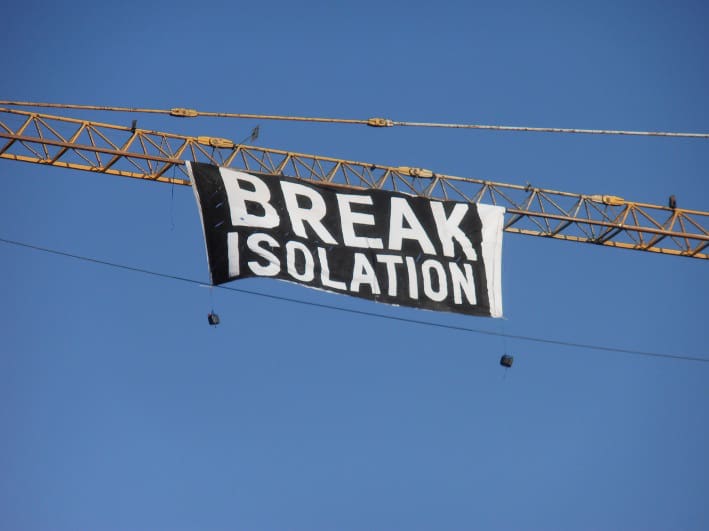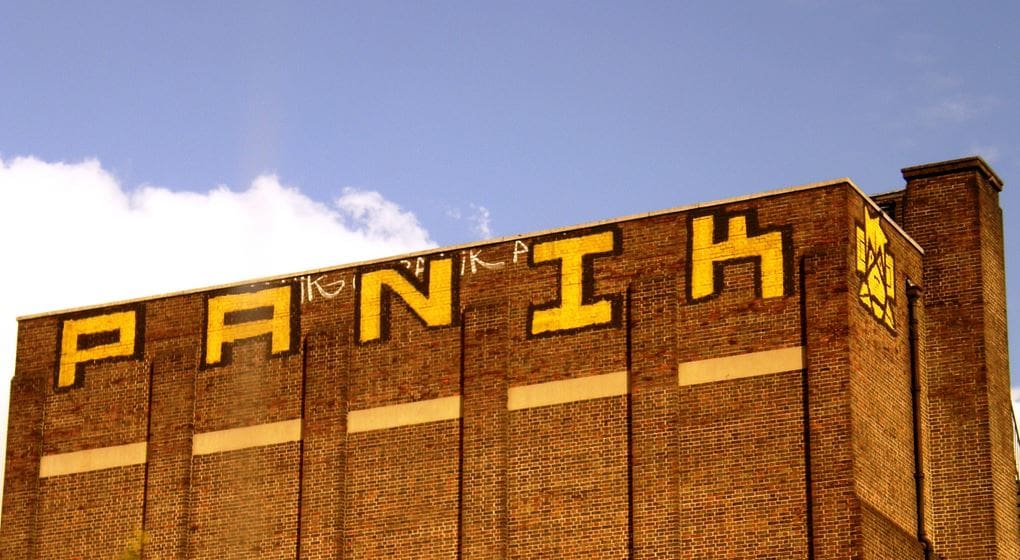Liberal Useful Idiots
Why the radical right should not be given a platform, ever
by P. Postlethwaite for Ajour Magazin (Switzerland)
19 March 2017 (original post in German)
Free speech is once again a hotly debated topic internationally. In the US, various liberal commentators tied themselves in knots with worry over the obstruction of the last stop on alt-right shit-stirrer Milo Yiannopoulos’s Dangerous Faggot tour in Berkeley, where in the course of events, among other things, a spotlight’s generator was set on fire. This same sort of drama repeated itself recently in Zurich, when a planned public roundtable with Alternative für Deutschland (AfD) ringleader Marc Jongen at the Theater Gessnerallee was canceled after fierce protest. The theater explained that security for the debate could no longer be guaranteed—whatever that’s supposed to mean—even though it is rumored that it was numerous directors’ threats to discontinue work with the theater that ultimately tipped the scales.
One organizer of the event, Zurich University of the Arts (Zürcher Hochschule der Künste or ZHdK) lecturer Jörg Scheller, penned an editorial in the Neue Zürcher Zeitung (NZZ) entitled “Where is the courage to quarrel?” in which he paints protesting progressives as having fallen into some sort of totalitarian frenzy. The director Milo Rau, who insists the mission is to deconstruct evil and thus reveal its banality, wrote in Zurich’s other liberal rag, the Tagesanzeiger, that the roundtable’s cancellation was “not a disaster, but a missed opportunity.”
What lies at the heart of all these and other objections to the event’s cancellation is a radical misapprehension of the New Right’s strategy, and a colossal naiveté. There are very good reasons not to offer people of Jongen‘s ilk the podium. This has little to do with fear of their irresistible charisma, even if the characterization of Jongen as a “sophisticated rhetorician (demagogue) in the ranks of the AfD” in an open letter to the Gessnerallee [signed by over 400 intellectuals, artists, and academics from Germany, Switzerland, Austria, and elsewhere, urging the theater not to let Jongen onstage –ed.] unfortunately makes it sound that way.
To address the dumbest among liberal counterarguments: the cancellation of this event was not censorship. Censorship is a state practice, and whoever seriously cares about speech and press freedoms should have a long look at how these fundamental liberal values are treated in places where such strongmen as Erdoğan, Putin, or Orbán (all revered by the right, it bears repeating) hold the reins. The AfD itself exercises great discretion in excluding antagonistic journalists from its party functions and, according to its party program in Saxony, wants to legally obligate cultural institutions to “foster affection for the homeland.” That alone means nothing good for free theaters like the Gessnerallee, and should make us think hard about whether we really want to give a platform to people who, as soon as they get the chance, will turn around and silence us. All this chatter about freedom of speech and censorship is purely strategic, and will amount to nothing more than so much toilet paper once state coercive power is in their hands.
Beyond that, the self-presentation of innocent victimhood belongs to the standard repertoire of German rightwingers—Martin Walser and Thilo Sarrazin were complaining about the supposed terrible dominance of leftwing attitudes in media and society, as they rushed from one talkshow or newspaper interview to the next. No one is forbidding Jongen the expression of his opinions, or confining him to town square soapboxes and poorly-maintained blogs. The man is a lecturer at a German university and has access to many media outlets. That is a privilege and not a right. Nobody would accuse the NZZ of censorship for (thankfully) refusing to publish articles about the “true stories” behind the Kennedy assassination, the moon landing, or 9/11. Does Mr. Jongen have more of a right to the spotlight for his loud bodily expulsions than some conspiratorial lunatic?
Even among most people in favor of the Gessnerallee roundtable and other such events, the answer would presumably be no—but we have to demystify the rightwing by confronting them with arguments, they might counter. Of course there are all sorts of good arguments against authoritarian nationalists, and we have nothing against disseminating these as far and wide as possible. But anyone who thinks that we have to sit down with radical rightwingers to hash it out, again, misapprehends not only their strategy but also the relationship between public debate and social reality. Because for the New Right, having the more convincing argument is a marginal concern at best—that is not their terrain.
Their strategy is a different one, one that they have indeed plagiarized from the left, in particular from the Italian communist Antonio Gramsci. In the 1920s, while he was incarcerated under Mussolini, he wrote in his Prison Notebooks that the left must organize itself not merely on an economic basis but that it has to struggle in the realm of ideas as well, because only by achieving cultural hegemony can the door to political power ultimately be cracked open. The next to draw on this idea of a struggle for cultural hegemony were the French Nouvelle Droite in the sixties; since then it has become the guiding principle of New Right formations across Europe. Thus it is not about finding arguments to defend one’s position but rather to set the issues agenda, polarize societal discourse, and build a tangible cultural presence.
We have been able to observe how this works in recent years especially within the framing of the discourse around refugees and migration in Germany. Even though there is a certain competition at the organizational level, a functional division of labor has been cobbled together among neo-Nazis, Pegida, AfD, and their consorts. Neo-Nazis, in their role as denizens of Facebook groups and the like, organize anti-refugee protests and actions, and provide logistical infrastructure and ideological ballast for their comrades-in-arms against the impending demographic reconstitution of Europe by immigration from other cultural milieus (sic). The AfD, on the other hand, takes the role of presenting themselves as the serious parliamentary appendage of these “concerned citizens” and thus become the media-friendly spokespeople of the movement. And naturally every talkshow producer conscious of “balance” will invite an AfDler to any discussion of the issue known as “the refugee crisis,” because it promises to be interesting (read: controversial) television.
Last year nearly half the talkshows on German public television were about the issue of refugees, and as if this relentless media flogging by itself weren’t enough to impress upon the average viewer that the very existence of refugees presents a massive problem for Germany, the reliably attendant AfD representatives were able to add their fuel to the fire in order to create enormous public awareness around a “problem” that in fact isn’t one. There was no getting around the AfD on this issue; their performances on public television provided them legitimacy and because they became the focus of everyone’s attention, the discursive space of socially acceptable speech slid continually rightwards. Staged taboo-breaking—for example Beatrix von Storch’s meditations on the necessity of shooting migrants at the German border—amplified this mechanism even further, for such bilious discharges are consistently followed not by condemnation and stigmatization, but rather the next invitation to appear on Anne Will.i This broad media representation has a hand in comforting anyone who wants to burn down a refugee shelter that they can do so with the certainty that they are carrying out the true will of the people.
The task of movement intellectuals like Jongen is, on the other hand, to embed rightwing ideology also in the parts of the bourgeois public who still regard jack-booted Nazis as beyond the pale and don’t even have a television at home with which to watch Hart aber Fair. When they find useful idiots like the Theater Gessnerallee and [liberal patriots and supposed refugee rights activists] Operation Libero offering them a platform of bourgeois acceptability, the game is up. Even if it is argued that it’s only about the spirited exchange of ideas or, one better, exposing the right for what it is, we have still succeeded only in contributing to the normalization and legitimization of racist positions. Even a more “balanced” lineup at the event would not have changed this. When we offer the podium to anyone running interference for interests advocating, even if only rhetorically, for the mass murder of certain social groups, we prepare the ground for the practice as well. It was not for no reason that last year in Germany there were on average nearly ten racist attacks every day, and not for no reason that such incidents also massively accelerated in Great Britain after Brexit and in the US after the election of Trump.
We are left, finally, with one more simple question: why does it take the arrival of a German rightwinger to let loose such a firestorm of indignation in Switzerland, when we already sit across the table from the local variety so often?
Translated by Antidote
Featured image source: Revolutionäre Jugend (Switzerland)
Endnotes
i Not that the activities of the European border agency Frontex are any more humane, but they are carried out—blessed be!—far away on the rough waters of the Mediterranean.





